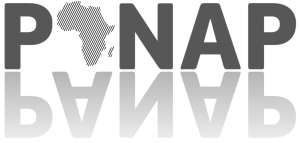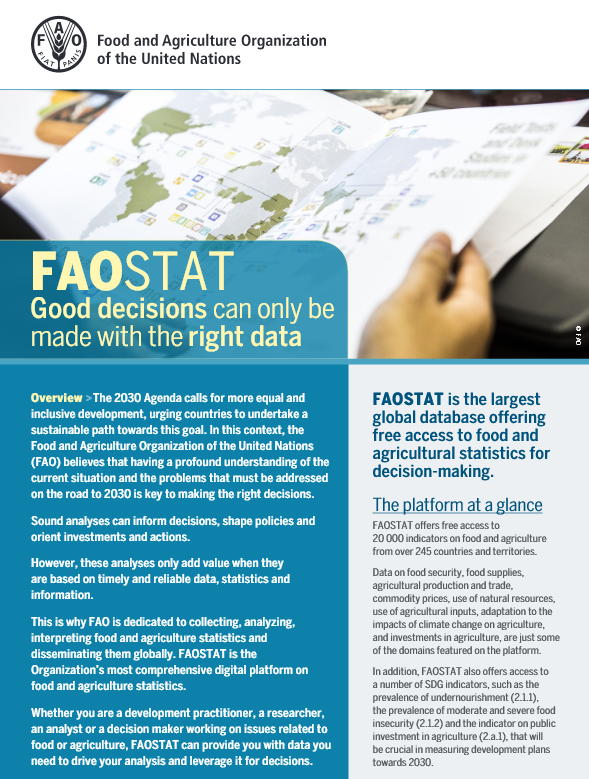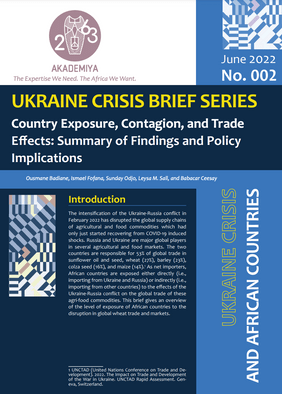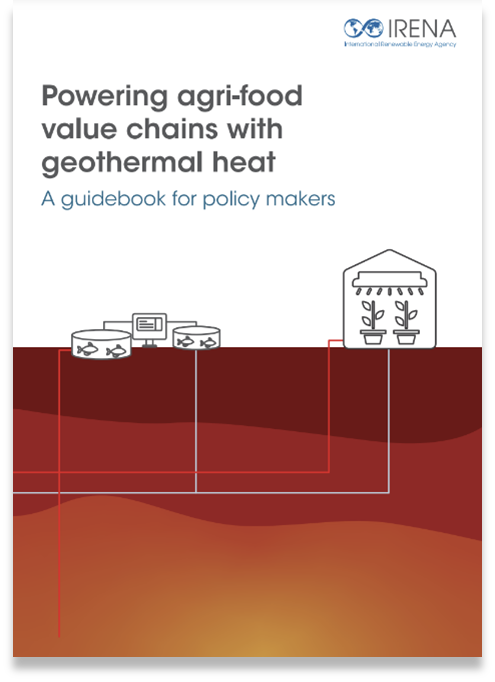REPORTS
AKADEMIYA2063 (2022) UKRAINE CRISIS BRIEF SERIES. Country Exposure, Contagion, and TradeEff ects: Summary of Findings and PolicyImplications, # 5pAKADEMIYA2063 (2022) Contagion and Exposure of AfricanCountries to Global Wheat TradeDisruptions # 8p
- Strengthening knowledge Partnerships in African Agriculture # 11 p.
- Knowledge Management (KM) Awareness # 12 p.
- Fake News and Misinformation in the Agriculture Sector # 12 p.
- Organizational Knowledge Management Professionalization # 13 p.
- Strengthen Knowledge Management Competence Centres to drive the Transformation of African Countries into Knowledge Societies # 14 p.
- Advocating for Knowledge Inclusion and Adoption of Viable Business Models in the creation and Dissemination of Knowledge within National Agricultural Research Services (NARS) # 13 p.
- DRAFT THEMATIC BRIEF 1. CLIMATE CHANGE IMPACTS ON FOOD SYSTEMS IN AFRICA # 12 p.
- DRAFT THEMATIC BRIEF 2: LAND RESTORATION AND BIODIVERSITY IN AFRICA # 10 p.
- DRAFT THEMATIC BRIEF 3: PEOPLE-ANIMALS-ECOSYSTEMS – HEALTH AND WELLBEING IN AFRICA #9 p.
- DRAFT THEMATIC BRIEF 4: LAND RESTORATION AND BIODIVERSITY IN AFRICA # 10 p.
GRFC (2022) Global Report on Food Crises 2022 - In Brief (English version) #3 p.
RECORDINGS JULY
21 July. Strengthening policy research and analysis capacity: The role of institutional development programs by IFPRI - Includes the presentation: Building Locally Led Agricultural Policy Analysis Capacity in Africa
6 July. Successes in exporting to the EU markets from SMEs and entrepreneurs by PAFO/ColeACP
RECORDINGS JUNE
30 June. Building and financing climate-resilient agriculture and food systems in Africa - Organised by E3G, an independent climate change think tank and co-founder of London Climate Action Week, and WRI, co-lead of the Food and Land Use Coalition,21-22 June. Aswan Forum for Sustainable Peace and Development was held in Cairo
22 - 23 June. Upscaling private sector participation and science-based outreach in West Africa by LEAP4FNSSA
21-22 June. European Development Days (EDD 2022)
16 June. The role that social mobilisation/capital has played in the Natural farming programme in Andhra Pradesh By AFSA
14-15 June. Global donor platform Annual General Assembly
9 June. Pastoralism and large-scale renewable energy & green hydrogen projects
6 - 8 June. 8th Annual Agricultural Policy Conference (AAPC)
7 June 2022. Importance of local languages in agriculture extension
RECORDINGS MAY
19 May. Soil Biology for Crop Nutrition and Reduced Pathogen Outbreaks
9 - 20 May. 15th session of the Conference of the Parties (COP15) AFDB, FAO, GLF, CGIAR
12 May. Farmer Field Schools for the agroecological transition
11 May. FoodTech Innovation Revolution: The 2022 Game-Changers - Spoonshot analyzed more than 7000 foodtech startups and measured their innovativeness using several criteria including novel ingredients, health benefits, and consumer reviews. Presentation of a Nigeria and Kenya start-up















